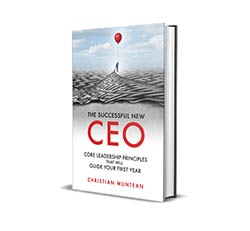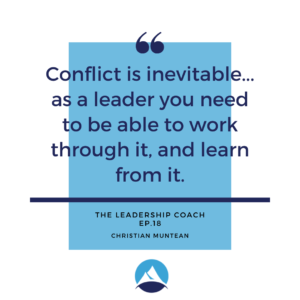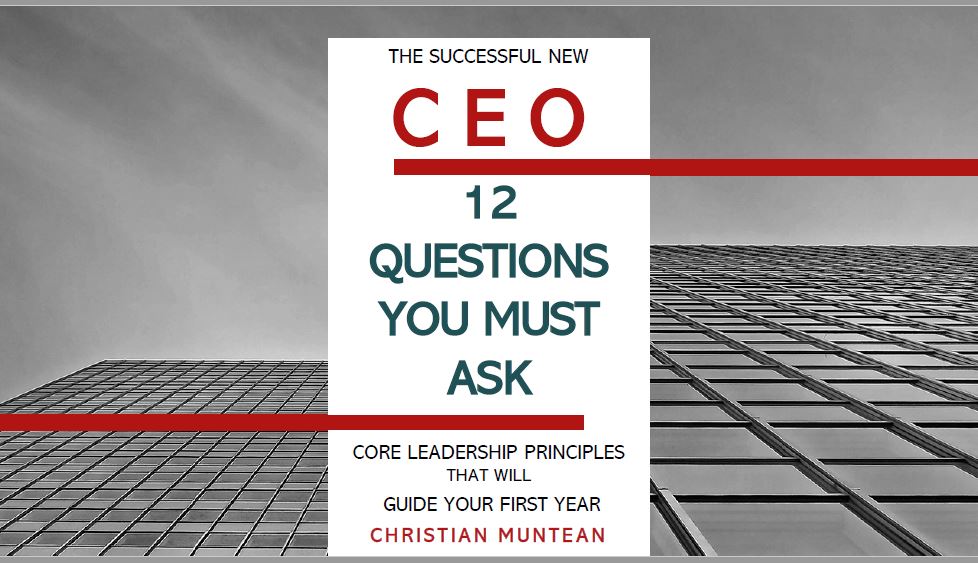The Four Mindsets That Cause Leaders To Self-Sabotage*

 When I first learned to ski, I fell — a lot. Then the time came when I didn’t fall. I picked up speed, had control, and felt good. But it seemed too easy and even fun. I didn’t feel right, and so I fell. Falling felt normal. I was so accustomed to thinking, “I can’t ski,” that when I could, I didn’t know how to handle it.
When I first learned to ski, I fell — a lot. Then the time came when I didn’t fall. I picked up speed, had control, and felt good. But it seemed too easy and even fun. I didn’t feel right, and so I fell. Falling felt normal. I was so accustomed to thinking, “I can’t ski,” that when I could, I didn’t know how to handle it.
Your Success Thermostat
Everyone has a “success thermostat.” This thermostat is set to a temperature that is a composite of what you think you deserve and what you can manage. This directly impacts how well and how far we lead. If life starts to cool down below our internal setting of what we believe we deserve and can manage, we hustle to heat life back up again. However, if things heat up beyond our normal “settings,” most leaders will begin to back off from what made them successful or even sabotage their own success.
Organizational Growth And Mindset
Growth trajectories don’t look like smooth curves. They usually look like stair steps. At the bottom of each step is a leader who either sees the next step as a wall or as an opportunity to grow to the next level.
What you see is determined by mindset. That determines the future you can create and sustain. Leaders aren’t stopped by a lack of opportunity — opportunities can be created. They are stopped, usually, by their mindset.
The Four Mindsets That Cause Leaders To Self-Sabotage
• Fixed: In defining a “fixed” mindset, Psychologist Carol Dweck explains: “In a fixed mindset, people believe their basic qualities, like their intelligence or talent, are simply fixed traits. They spend their time documenting their intelligence or talent instead of developing them. They also believe that talent alone creates success — without effort.”
When a leader with a fixed mindset hits a limit, instead of asking, “How do I get around this?” They say, “I guess this is as far as I/we can go.”
This same leader views others with a fixed mindset. It’s difficult to encourage and coach others to higher success if they interpret someone else’s challenges as “They’ve hit their limits — they’ve got nothing else to offer.”
• Scarcity: Researcher and Yale instructor Laura Freebairn-Smith found that leaders with an abundance perspective see the world as having sufficient resources for everyone and that power is shareable.
Leaders with a scarcity perspective, on the other hand, tend to lead through fear and control. They tend to believe that resources are limited. They are often motivated by the fear of not gaining what they want or the fear of losing what they have.
Abundance leaders tend to have loyal teams with high morale. They are better at resolving conflict, communicating, and creating healthy team dynamics. Scarcity leaders tend to decrease team morale and energy. They are poorer communicators and delegators. Their teams tend to not want to work with them.
• Self-Worth: Many leaders determine their self-worth through a comparative lens: “I’m valuable when I’m as good or better than the Joneses.”
The problem with establishing your value through comparisons is that there is always someone who appears to be doing better than yourself. Author and psychotherapist Amy Morin says, “The way you choose to measure your worth as a person will serve as a major factor in the choices you make, the thoughts you have about life, and the way you feel about yourself.”
Poor self-worth is an enormous driver for many people. But it creates behaviors that work against a leader. It can lead to overly risky or overly guarded choices, holding others back, or jealousy. None of these behaviors or mindsets tend to lead toward the best kind of thinking or decision making. From confidence comes the belief that you have intrinsic value and that you bring value to others.
• External Locus Of Control: Psychologist Julian B. Rotter defines someone with an internal locus of control as believing success or failure is dependent on their choices. Someone with an external locus of control believes that external forces determine their success or failure.
To a certain point, leaders tend to have an internal locus of control. However, this internal sense of control is often limited to situations they choose or are familiar with. Fast growth or change can cause leaders to have to navigate unfamiliar terrain. This can shake their belief that they can act.
Many leaders who seem enormously confident and “in control” find it difficult to decide or act when they need to consider topics such as their exit or succession, a significant market or technology change, or internal team conflict. They demonstrate behaviors of avoidance, victim stance or denial, none of which allow them to successfully lead in new or challenging dynamics.
Building Success Mindsets
Ready to change your mindset? Here are three habits I’ve found to be most helpful:
1. Curate your relationships. Exposure to others over time shapes our mindset. Spend time with positive, healthy-minded people and reduce or eliminate your time with the negative-minded. Pursue professional development opportunities that attract inspiring peers. A coach might help you think and see differently in this respect.
2. Manage your media. Most news and social media provoke attention by appealing to fear, scarcity, a sense of deficiency or anger. They rarely appeal to our best selves. Limit or remove your exposure to negative media and spend more time with media that encourages you and feeds the mindset you want to build.
3. Immerse yourself in stories. We learn better with stories. Expose yourself to stories of people who think and behave the way you want to. Whether through biographies, literature, documentaries or podcasts, expose yourself to narratives you want to emulate.
A leader who chooses a healthy mindset not only expands their own potential for success but the success of everyone they lead.
Which mindset do you tend to struggle with? What are you willing to do to change?
Take good care,
Christian
*this article first appeared on Forbes.com, December 4, 2018
There are 𝟭𝟮 𝗰𝗿𝗶𝘁𝗶𝗰𝗮𝗹 𝗾𝘂𝗲𝘀𝘁𝗶𝗼𝗻𝘀 to ask before accepting a new CEO position. Do you know what they are? Instantly download my free e-book here.
Vision Building Sprints
If you or your team are wrestling with defining your vision and would like help, I’m offering the opportunity for a “Vision Sprint”. This is a dynamic calibrating exercise. We will tightly dial in on your vision for the year and the key steps you need to take to get there. I’m offering either individual sessions ($2500) or team sessions ($4000).
Contact me at christian@christianmuntean.com if interested in learning more or setting up a time.
The Successful New CEO – FREE BOOK OFFER
As an executive coach, I’ve found that the experiences for new executives (or experienced executives in new roles) tend to touch on familiar themes. No one’s situation is the same. But there are common principles that, when followed, do guide executives to success. I introduce those core principles in my new book, The Successful New CEO. I’d like to give you a free copy (just pay shipping)!
situation is the same. But there are common principles that, when followed, do guide executives to success. I introduce those core principles in my new book, The Successful New CEO. I’d like to give you a free copy (just pay shipping)!
The book is divided into four parts:
- Becoming an Executive: Leaders can only lead out of who they are. How do you become the kind of person who successfully and gracefully inhabits this role?
- Seven Essential Executive Skills: The skills that earned you this new role may not be the ones that you need in the role. What are the key leadership skills that become even more important at the executive level?
- Leading Your Leadership Team: More than likely, you’ll be leading other leaders. How do you lead a confident, effective leader? How do you build a team out of leaders?
- First Things: Where do you start? How do you quickly build credibility and engagement? What is too fast or too slow?
The goal of The Successful New CEO is to help you quickly gain the confidence of your team, successfully address the issues you will discover, score early wins, and set a course for a fruitful future.
If you’d like to see how this book will benefit you or someone you know, I’d like to make it available to you for free! Click Here.
Find the value of your company with my free assessment tool: The Value Builder System
The Value Builder System™ is a 13-minute online questionnaire that evaluates your business on the eight factors that contribute more to its attractiveness and value. These factors are scored on a scale of 1-100. Businesses that score over 80 are likely to command 70%-100% higher value than others.
THE LEADERSHIP COACH Podcast
In my podcast, THE LEADERSHIP COACH, we explore effective, high impact and enjoyable leadership. We talk about personal development and the attributes that all effective leaders possess. I interview other leadership experts who share their knowledge and tips to help you build the confidence to lead and learn the habits of good decision-making.
Opportunities
Free Resource: How To Accomplish More Without Doing More is a workbook I created to walk leaders through a process of helping you own your calendar, liberate your time, and still get more done. Download it for free!
Executive and Leadership Coaching: Do you feel overwhelmed? Are you not getting the results you expect from the effort you are putting in? Do you find yourself facing similar challenges time and time again? Would you like to change specific ways of relating or reacting? If you would like to experience predictable, measurable growth Contact me.
Profitable Exit Strategy Workshop: Are you a business owner or partner? Over 55? Starting to think about exiting your business or active management in the next 3-5 years?
- Are you curious about what your business might be worth?
- Would you like to discover the specific steps you need to take to increase its value and become highly attractive to a buyer?
- Are you planning on handing it over to family or employees and you want to ensure long-term success?
If so, contact me now
Categories
Get Christian’s Newest Book: Train to Lead

Download my free 10-page eBook:
How To Accomplish More Without Doing More:
Eight Proven Strategies To Change Your Life
Discover how to save eight hours during your workweek-even if you're too busy to even think about it. The resource every maxed out executive needs.

